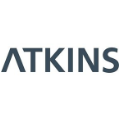Civil and Infrastructure Engineering
BEng Civil and
Infrastructure Engineering
Degree Apprenticeship
Develop expertise in fundamental civil engineering principles to enhance the quality of life for present and future generations
Our BEng Civil and Infrastructure Engineering degree apprenticeship is taught over five years and you'll be learning whilst working in an exciting civil engineering role
We aim to develop civil engineers who are able to provide technical and management input to realise design solutions for complex engineering problems in the built environment, including for buildings, airports, railways, roads, tunnels and bridges.
Watch the video above about the Degree Apprenticeship for more information.
Hear from our students













The BEng Civil and Infrastructure Engineering is a full Warwick degree, studied over five years through on-the-campus face-to-face teaching and virtual learning experiences, with our teaching and assessment having blended and integrated work based learning throughout.
Our programme has been designed in collaboration with employers to satisfy the Apprenticeship Standard for a Civil EngineerLink opens in a new window. This is the employer-defined, government-approved standard of competence for an apprentice in this engineering discipline.
Whilst parts of the degree programme are studied during on-the-job activities, the majority of the teaching will take place during six, one-week residential blocks, delivered by Warwick academic staff with collaborative teaching support from employers.
Residential teaching will be structured around a number of modules delivered per week, with one week for laboratories and seminars, etc., and the sixth week for examinations and other assessments. The five teaching weeks will comprise lectures, seminars and laboratories. During your time on campus you will have opportunities to meet one-to-one with your academic mentors and tutor, and with other Warwick staff. In addition to degree apprenticeship studying, the block weeks on campus in the City of Coventry will enable you to use all of Warwick facilities and to spend time socialising with your peers.
The BEng Civil Engineering degree apprenticeship has been developed in partnership with a group of employers. Employers who regularly advertise degree apprentice opportunities in conjunction with our Civil and Infrastructure Engineering BEng include Arup, AtkinsRéalis, London Bridge Associates, Mott MacDonald, Murphy Group and Warwickshire County Council.
While study on this programme learning will also happen at your place of work and this studying contributes to your overall degree qualification. As a degree apprentice you will be a full salaried employee. You’ll be working as part of a team with real responsibility giving you hands-on, vocational training every day. At work, you will be supported in your role by both your line manager and employer mentor. The mentor will be supporting you working towards satisfying a number of attributes with a Professional Institution, which currently is the Institution of Civil Engineers (ICE), via their training agreement for the IEng professional engineer qualification.
After being awarded your BEng (Honours) Civil and Infrastructure Engineering degree and meeting the requirements of ICE you will be entitled to take the end point assessment, as specified in the Civil Engineer Standard, for IEng membership.
Our programme has been set-up to accommodate both School Leavers (new entrants directy into the business) and existing staff (for upskilling).
Entry requirements for the BEng Civil and Infrastructure Engineering Degree Apprenticeship are:
Candidates with non-traditional qualifications will be considered on a case-by-case basis and will be dependent on the employer’s recruitment process, and subject to passing appropriate assessment on Mathematics set by The University of Warwick. We encourage applicants with non-standard qualifications to contact us to discuss their eligibility. For any questions relating to entry requirements please contact a member of the admissions team via eng.apprenticeships@warwick.ac.uk.
BTEC:
BTEC Diploma grade D*D*, with an A grade A level Mathematics or subject to passing appropriate assessment in mathematics.
BTEC Extended Diploma grade DDD including the two Mathematics units, 'Calculus to Solve Engineering Problems' and 'Further Engineering Mathematics'.
A Level: AAA
AAA grades at A level, to include Mathematics and a Physical Science. Applicants with strong profile but without A level Mathematics will be subject to passing appropriate assessment.
Where a candidate has already gained an undergraduate degree this may be offered to meet entry requirements. Please note that, due to the funded nature of a Degree Apprenticeship programme, applicants with undergraduate degrees in comparable subjects may not be eligible to be recruited.
Level 2
All apprentices are required to have Level 2 English and Maths prior to taking the End Point Assessment and these Level 2 qualifications are expected as an entry requirement.
Please note that the information below is relevant to those starting the programme in the 2025-26 academic year.
In the first two years of your degree apprenticeship, you'll study the foundations of engineering and civil engineering to develop your knowledge on the core principles of analysis, design, sustainability, construction, and health and safety, to grow our future infrastructure and services.
In the third, fourth and fifth years, you'll build on your expertise and focus on the design and construction of civil engineering structures and infrastructure, learning how to plan and manage projects. After the fifth year, you'll have the opportunity to integrate your knowledge and understanding from the previous five years into your job role by carrying out a real-life civil engineering project within your organisation as part of the final End Point Assessment (EPA).
Year 1 (75 credits; five 15 credit Level 4 modules)
- Business Management and Professional Skills
- Engineering Structures
- Materials for Net Zero
- Computational Modelling
- Engineering Mathematics
Year 2 (75 credits; three 15 credit Level 4 modules and two 15 credit Level 5 modules)
- Construction Management
- Structural Analysis
- Engineering Mathematics and Data Analytics
- Creative and Conceptual Design
- Geology, Surveying and Sustainable Practice
Year 3 (60 credits; two 15 credit Level 5 modules and a 30 credit Level 6 module)
- Concrete Structures Design
- Steel Structures Design
- Structural Engineering Project
Year 4 (60 credits; two 15 credit Level 5 modules and a 30 credit Level 6 module)
- Geology and Soil Mechanics
- Transport Systems
- Infrastructure Engineering Project
Year 5 (60 credits; two 15 credit Level 5 modules and a 30 credit Level 6 module)
- Hydraulics and Water Resources
- Design of Earth Structures
- Research, Planning and Project Proposal
Year 6 (8 months from Gateway, EPA, 30 credits at Level 6)
This exact make-up of the Civil Engineer Degree Apprenticeship programme will be developed in partnership with your employer, and this may result in minor alterations to this structure and/or individual modules.
Degree apprenticeships offer apprentices a debt-free route to academic study whilst earning a salary. As an employee of a company the University fees will be funded by way of the UK government's Apprenticeship Levy, and this funding will be part of your employment conditions.
If you’re over 16 and live in England then you may be eligible to undertake a Degree Apprenticeship. Citizens of EEA countries, or non-EEA citizens legally resident in the UK for at least the previous three years before the start of the apprenticeship (NOT for educational purpose) may also be eligible.





This BEng (Hons) Accredited CEng (Partial) degree is accredited by the Joint Board of Moderators (JBM) comprising the Institution of Civil Engineers, Institution of Structural Engineers, Chartered Institution of Highways and Transportation, the Institute of Highway Engineers and the Permanent Way Institution on behalf of the Engineering Council as:
1. fully meeting the academic requirement for registration as an Incorporated Engineer (IEng).
2. partially meeting the academic requirement for registration as a Chartered Engineer (CEng).
A programme of accredited Further Learning will be required to complete the educational base for CEng. See www.jbm.org.ukLink opens in a new window for further information and details of Further Learning programmes for CEng.
Essential information
Duration
BEng 5 years full time
Location of study
University of Warwick, Coventry
Tuition fees
Paid by your employer
How to apply
To apply for a degree apprenticeship you will need to find a vacancy with an employer. Check out our apprenticeship vacancy page .
Enquiries
For enquiries on this School of Engineering degree programme, please contact eng dot apprenticeships at warwick dot ac dot uk
This information is applicable for 2025-26 entry.
